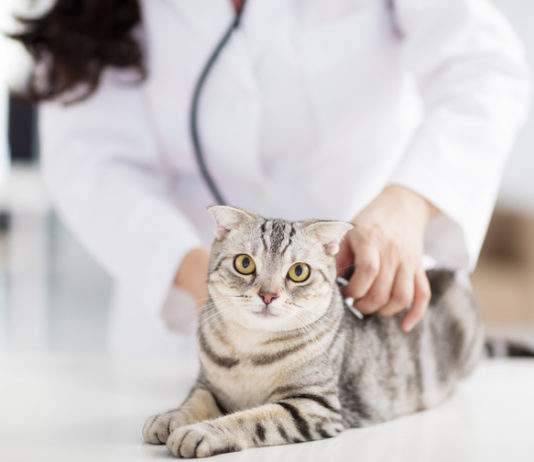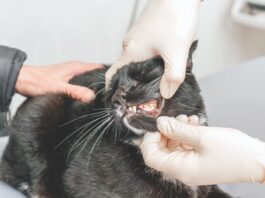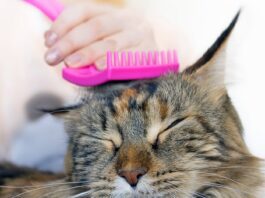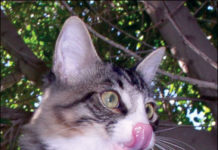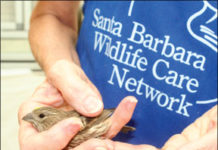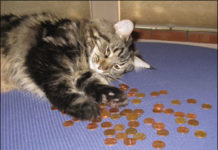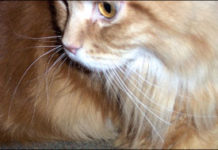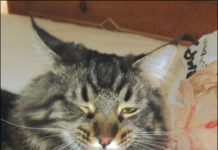Ask Elizabeth: 03/09
My cat, Nickel, meowed at the door to be let in this afternoon, as she always does after her outdoor adventures. Today was different, though, because when I went to the door to let her in she was sitting next to a dead crow. I dont know if she killed the crow, or if she found it dead and brought it for me to admire. Regardless, my first thought was of West Nile Virus. Can you tell me if cats can catch West Nile Virus from crows (dead or alive)? If they can catch the virus, are they able to pass it to humans?
Ask Elizabeth: 02/09
I can certainly sympathize with your need for sleep. Decker may be keeping you awake at night due to medical or behavioral reasons. Without more background information, I dont know which is likely to be responsible in your case, so Ill discuss several possibilities in the hopes that I hit upon the cause behind Deckers insomnia. In the meantime, you should schedule an appointment with your veterinarian. May I ask Deckers age? If he is an older cat (lets say over the age of eight), several medical conditions may be involved. The first - and most common disease to consider - is hyperthyroidism, a condition in which the thyroid gland produces excess thyroid hormone leading to a myriad of problems. The classic symptoms of hyperthyroidism include unexplained weight loss and increased appetite, but some hyperthyroid cats have a decreased appetite. Other symptoms occur in some - but not all - hyperthyroid cats and may include vomiting, excessive thirst and urination, diarrhea, an unkempt haircoat and hyperactivity. Excessive thyroid hormones also have an effect on the heart, causing an increased heart rate. Some cats develop a heart murmur and others may have elevated blood pressure. Without treatment, hyperthyroidism is often fatal, so a complete physical exam and a blood test looking for increased thyroid hormone (T4) should be your first step in determining whats causing Decker to yowl at night.
Ask Elizabeth: 01/09
Dear Elizabeth: Help! I am pregnant and really need some answers about Toxoplasmosis. I know (from reading CatWatch!) that people can be infected by eggs in a cats feces. I also understand that Toxoplasmosis is really dangerous during pregnancy, so I had my cat tested last week.
Ask Elizabeth: 12/08
I do believe that CatWatch readers are the most kind-hearted souls on earth! Thank you for wanting to help these little creatures. Its very common for female cats to bring home prey. Mother cats will first bring home dead animals to their young kittens, teaching them to eat prey animals. When the kittens are a bit older, the moms will bring home wounded animals, and will show the youngsters how to kill. Its possible that Marley is attempting to teach you how to hunt. The best thing that you can do when presented with an injured wild animal is to call a licensed wildlife rehabilitator for advice and assistance. Many well-meaning people are especially tempted to keep baby animals and care for them at home. Keeping wild animals - except to transport them to a wildlife rehabilitator - is against state and federal laws for lots of reasons. Many wild animals, even tiny babies, can transmit diseases to humans or other pets. Diseases, parasites or injuries may be difficult to detect and to treat, and each species requires specialized care.
Ask Elizabeth: 11/08
Dear Elizabeth: I adopted a cat from a local animal shelter three years ago. She is a beautiful brown tabby girl who loves to help when Im working at my desk. The trouble is that she sneezes green goobers all over my paperwork. When I brought her home she had a runny nose and goopy eyes with a lot of sneezing - a classic cat cold according to my veterinarian. A week of antibiotics helped decrease the wet sneezes, but Tabitha has never really recovered from that early cold. Three years have gone by and she still sneezes thick goobers nearly every day. Although she seems happy, is active and eats well, her constant snuffling, congested breathing and spewing green goobers breaks my heart - and also has me frustrated. My veterinarian has done everything she can think of, from antibiotics for weeks on end to medication to help with Tabithas immune system. Everything seems to help … for a while. What tests can I ask for to find out exactly whats causing Tabithas sneezing?
Ask Elizabeth: 10/08
Its a sad fact of life that cats dont live nearly long enough for the humans who love them. While cloning Couscous isnt an option, I would encourage you to take lots of photos and videos of Couscous, so that these images can bring you comfort when shes no longer a part of your physical world. Take them now; dont delay, because you never know what tomorrow will bring. Afterwards, maybe you would like to do something to help other cats, in honor of Couscous. A donation to an organization aiding cats is a traditional way to honor the memory of a beloved cat (the Cornell Feline Health Center is very grateful for the many memorial gifts it receives). You could also volunteer with a local shelter or rescue group, socializing cats or taking photos of adoptable pets to put on a Web site or poster. Dropping off supplies at a shelter can make you feel like you have a direct connection to cats in need. Finally, please consider sharing your home and your heart with another cat. For sure, he or she wont be a clone of Couscous, but this unique individual will surely bring joy to your home as you discover exactly what makes him or her so special.
Ask Elizabeth: 09/08
Dear Elizabeth: We adopted a new kitten from a local rescue group last month and she is just perfect. Although she had been tested for the leukemia virus and FIV by the terrific group that saved her from the street, we took her to our veterinarian right away so that she could be examined before we introduced her to our two older cats. After a clean bill of health, we brought Bunny home and she has become part of the family. The problem is that before we scheduled her spay surgery, she came into heat. What a scene!
Ask Elizabeth: 08/08
Hmm, if I had known about this disease during my days on the farm, I might not have been so keen on eating birds myself! Songbird fever is an uncommon disease of cats, that results from eating Salmonella-infected birds or from spending time in bird feeding areas (and ingesting contaminated bird feces). Symptoms of songbird fever appear suddenly two to four days after exposure, last two to seven days, and include high fever, anorexia, depression, diarrhea (which may contain blood) and vomiting. The diagnosis can be confirmed by bacterial culture of the feces or blood. Songbird fever is fatal in up to 10 percent of cases.
Ask Elizabeth: 07/08
My kitten, Snapper, recently spent a week in intensive care. Hes fine now, but he was so very sick that we feared he wouldnt make it. The cause of all his troubles turned out to be a penny. Yes, a penny! Apparently he had eaten one. As we later learned, pennies minted after 1982 are made from zinc, with just a coating of copper. If an animal swallows one, stomach acids eat away the copper…
Ask Elizabeth: 06/08
I have had whiskers all my life, but I really took them for granted until recently, when I heard a lecture by first-year veterinary student Tradel Harris on this very subject! You see, I was a special guest at Feline Follies, a show organized and run by Cornells veterinary students to raise money for a local shelter and to celebrate….cats! I didnt think it would be fair to our guest felines who were brought in by community members and students if I competed in the judging, so I spent my time enjoying the fun and informative booths set up by the students and listening to a few presentations.
Ask Elizabeth: 05/08
Dear Elizabeth, What is MRSA? My doctor says that a wound on my hand has an MRSA infection. Could my cat, Streets, have given it to me? He is an indoor cat and seems healthy, but could he be a carrier Wow! This calico had to ask for help with your questions! Although I have picked up quite a lot in my role as Official Spokes-cat for the Cornell Feline Health Center, MRSA was new to me. Before giving you all the information I got, Ill give you the short answer to your questions: MRSA colonization and infection can occur in cats, and transmission across species is possible. Therefore, it is POSSIBLE that your MRSA came from your cat. However, chances are MUCH greater that you were exposed to the bacteria somewhere in the community. In fact, most experts would worry that you could be a source of infection for Streets! Heres the whole story.
Ask Elizabeth: 04/08
Dear Elizabeth, I have four cats in my household and one of them, Tabitha, has a tendency to chew and eat plastic. Ive caught her chewing on plastic bags that Ive carried in from the store, as well as items in the basement that are wrapped in plastic. I worry that she could choke to death or hurt herself somehow. Why does she do this? One of my other cats is aggressive and chases her. Tabitha is afraid and will not fight back; could her plastic obsession be stress-related? Any ideas of what I can do?

